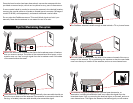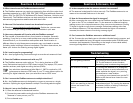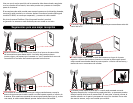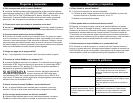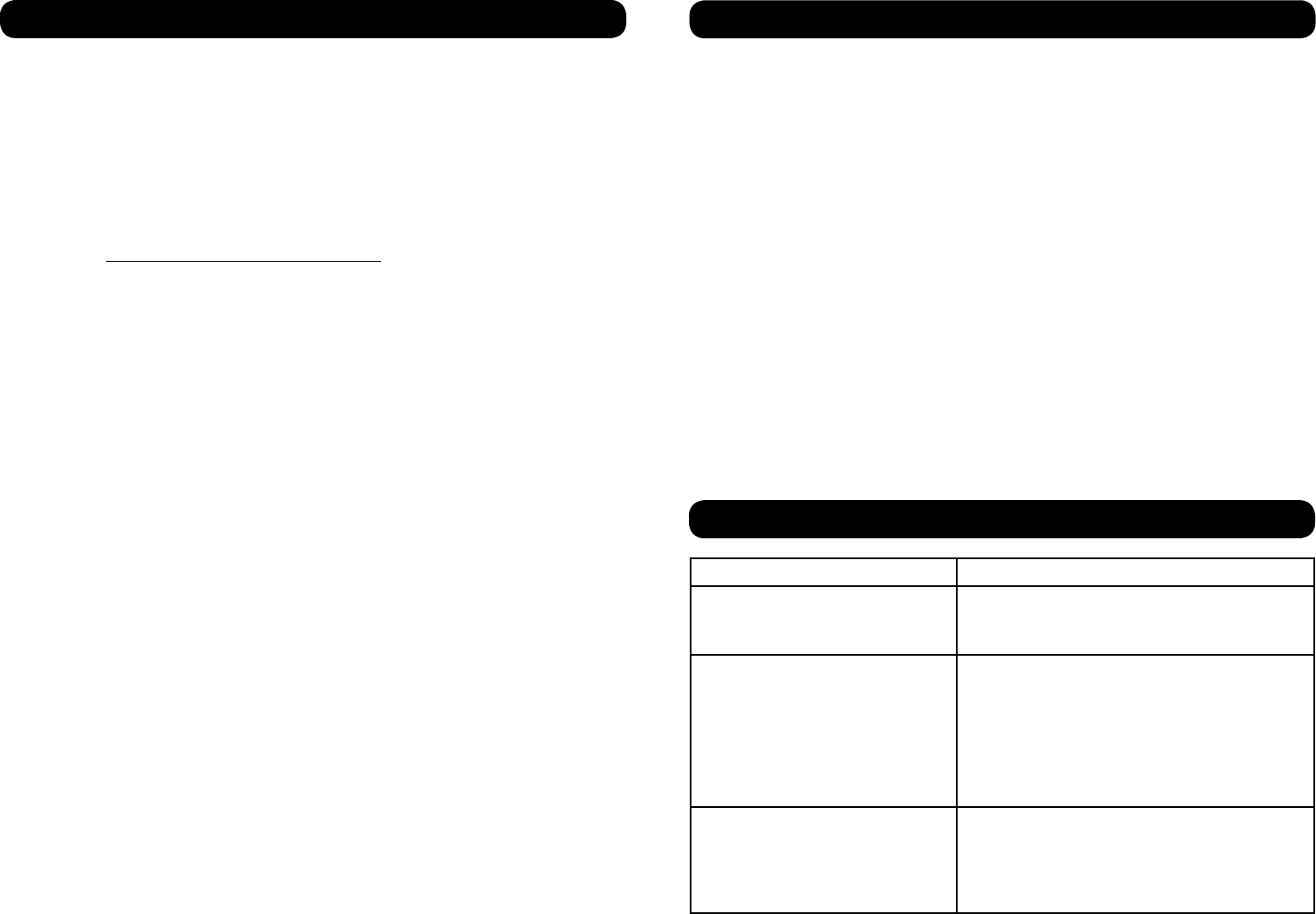
Questions & Answers
Troubleshooting
Issue Possible Cause
I am not getting channels. Try running a new channel scan on the
TV. Try the antenna in a new location.
Something may be obstructing the signal.
One channel is missing. Try turning the antenna 10 or 20 degrees
in either direction to avoid reflection or to
better optimize the signal, or try moving
the antenna to a new location.
Try running a new channel scan on the TV.
Refer to the channel scan insert for more
information.
The picture or sound freezes
while I am watching a channel,
or there are boxes in the
picture.
This is often caused by a weak or
intermittent signal. Try moving the antenna
to a better location or aiming it directly at
the tower for this channel.
Q. What channels can the FlatWave antenna receive?
A. The FlatWave antenna can receive programming from all of the major local
broadcast networks (e.g. ABC, CBS, FOX, NBC, PBS) plus additional networks
(Qubo, ION, The CW, This TV, MyNetworkTV, Azteca, Telefutura, Univision, and
Telemundo). The FlatWave antenna can also receive local news, weather and
educational programs that satellite and cable don’t offer.
Q. How can I find out what channels are broadcast in my area?
A. Check out www.winegard.com/localchannels. On this site, you can enter
your address and get a listing of likely channels available in your area.
Q. How many channels will I receive with the FlatWave antenna?
A. The number of channels will vary from location to location. Generally
speaking, if you live in or near a metropolitan area you will receive more
channels than if you live outside a metropolitan area. Each location is
different. Keep in mind that antenna reception may vary based on terrain
(including trees, buildings, hills and mountains). The fewer obstructions, the
better your chance for receiving strong digital signals.
Q. Do I need to pay for programming?
A. No—local programming received through an over-the-air antenna is free!
Q. Does the FlatWave antenna work with any TV?
A. The FlatWave antenna works with any TV or device that has an ATSC
tuner. Devices that have built-in ATSC tuners include TVs, laptops, PCs, some
satellite receivers, and digital recording devices (DVRs).
TIP
Any television manufactured after March 1, 2007 is required by U.S.
government to have an ATSC tuner. If your TV menu has an option for
scanning for digital channels, then your television has an ATSC tuner.
Q. Can I connect the FlatWave antenna to multiple televisions?
A. No—the FlatWave antenna is designed to connect to connect to a single
television. Splitting the signal between multiple TVs will degrade the signal.
Q. How do I set up the FlatWave antenna?
A. 1.) Place the antenna in the desired location.
2.) Connect the coax cable coming from the FlatWave antenna to the
“Antenna In” coax port on your TV.
3.) Run a channel scan.
Questions & Answers, Cont.
Q. Is there anywhere that the antenna shouldn’t be mounted?
A. The antenna is designed for indoor use only. The FlatWave antenna is not
meant to be mounted outdoors or in the attic.
Q. How do I know where the signal is strongest?
A. After connecting the coax cable from the FlatWave antenna to the “Antenna
In” port on the TV, run a channel scan. Try the antenna in different locations,
making sure to run a channel scan every time you move the antenna. Finding
TV signal is similar to cell phone coverage. Sometimes walking a few feet
can make a difference. The less obstructions and the higher the antenna is
mounted, the better chance of receiving a strong signal.
Q. Can I connect the FlatWave antenna to additional coax?
A. Yes. Connect the provided coax to a female-to-female barrel connector, and
then connect additional coax. Winegard recommends model FS-8100 barrel
connector (sold separately). Depending on the length of coax cable added,
some signal degradation may be experienced.




